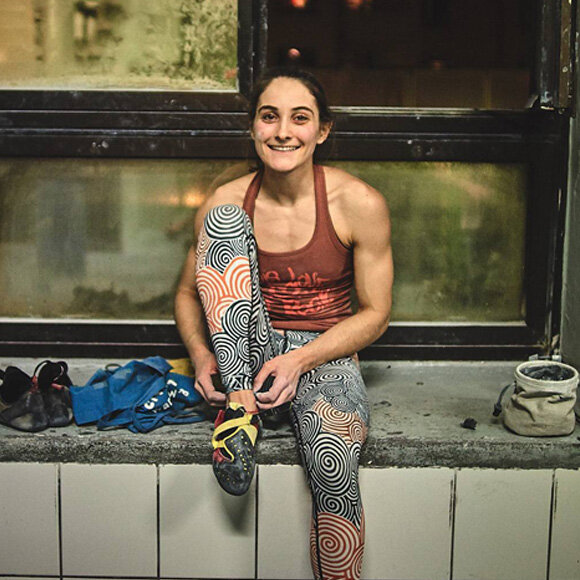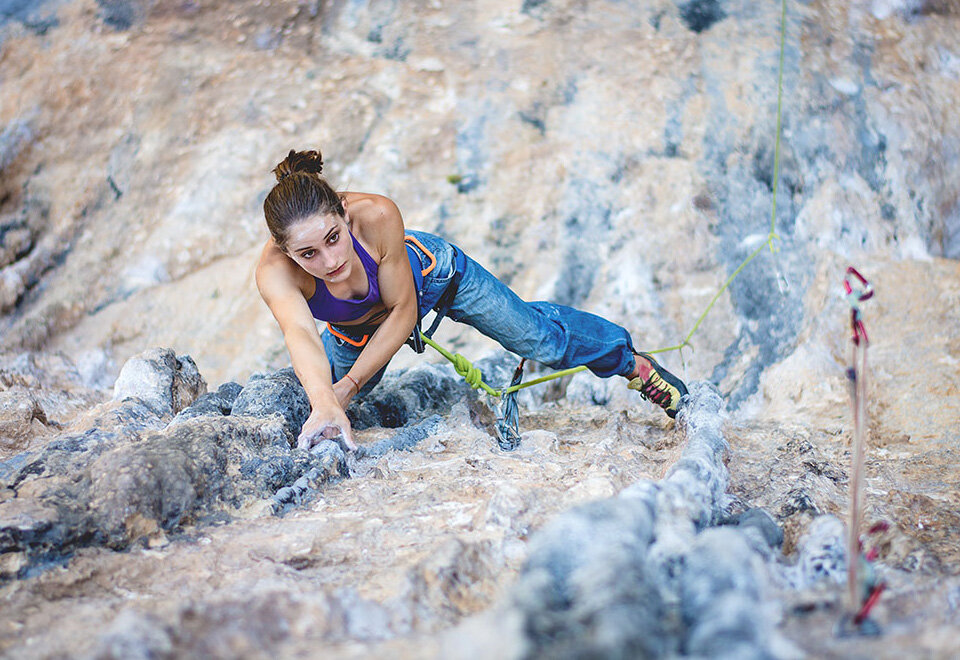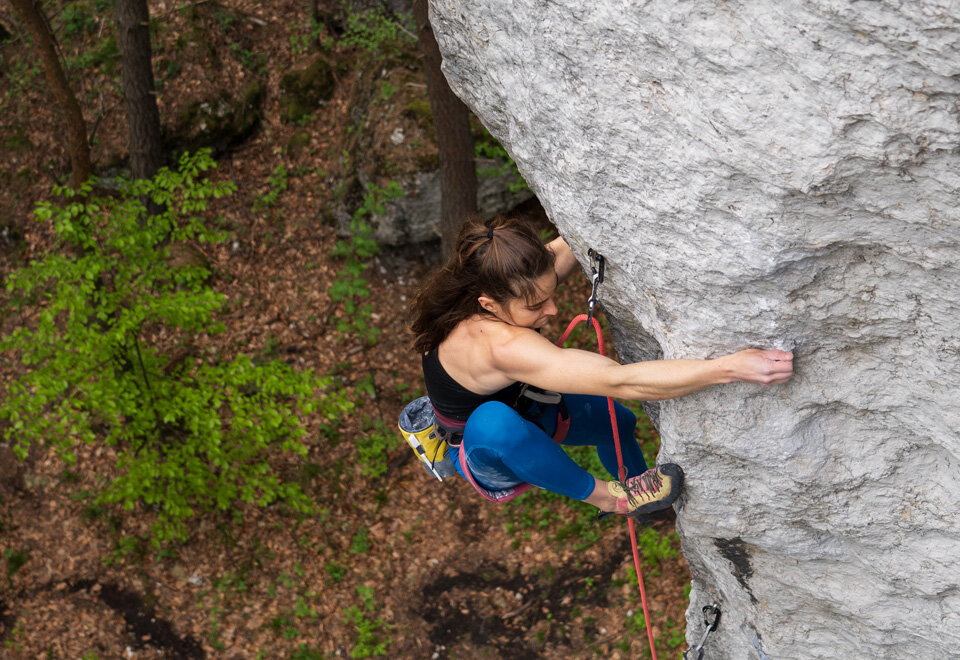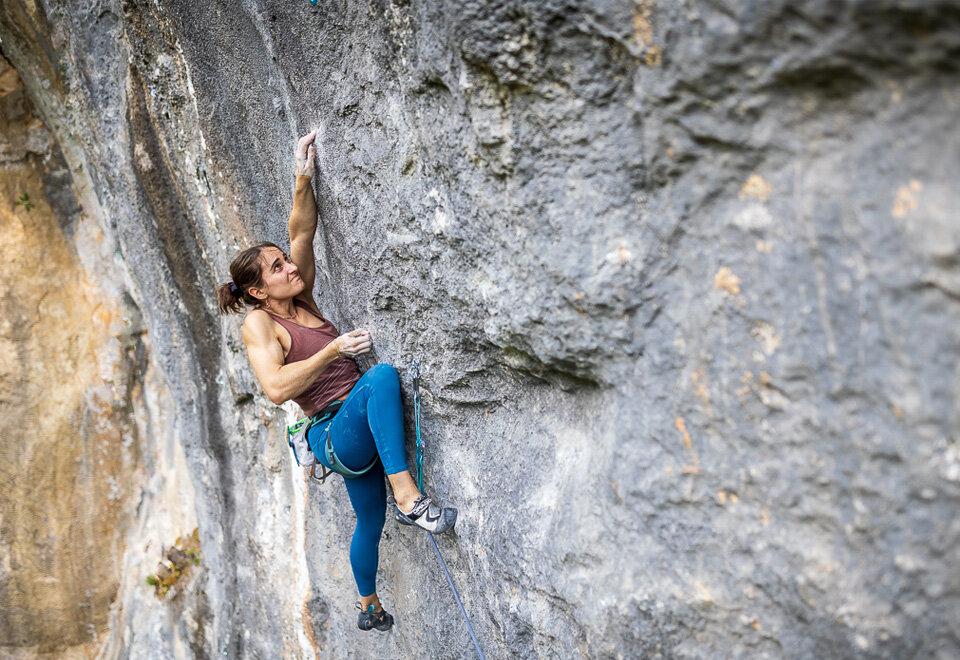When and how did you get into climbing? What keeps you interested? What fascinates you?
I first got on a climbing wall when I was 13 y.o. after quitting swimming. Definitely something that kept me interested was the freedom of movement and how climbing allows to discover new amazing places around the world. Another aspect that really stood out to me and kept me in the sport was the amazing community.
Who was your childhood hero and do you consider yourself a role model now? Does it influence you at all that other people look up to you?
My climbing hero in the early days was definitely Alex Puccio, I loved her style and determination when climbing and I wanted to be just like her. I hope to be a role model for young girls that want to really get into climbing, by showing them the struggles I had when I started and encouraging them to dream big. Sometimes I can put some pressure on myself because I know that people might look up to me, but it also motivates me to be a better climber and person.
What have been the most important milestones in your life so far, both in climbing and in everyday life? And did you recognize them immediately as such or only later on?
In climbing I think the biggest milestone that made me believe in myself as a climber was winning the Bloco Losers competition in 2016. I realized after a couple of years that that was a crucial moment that shaped me as the climber I am today. In everyday life a very important milestone was moving to study from Warsaw to Milan, which enabled me to study and work in the space industry that I’m so excited about. I guess with this one I knew before moving that this would be an important decision in my life.
What were your greatest failures / setbacks / injuries? How did you cope with them and how did you come back from them?
I unfortunately had a streak of injuries that made me question whether I should continue to take climbing so seriously. After the best competition season in my life I had a serious wrist injury, which ended in surgery and more than 7 months off climbing, A couple years after that, after a lot of training and feeling in my best rock shape a dislocated elbow disabled me to travel and climb for a couple of months. After moving to Milan a strong shoulder inflammation made me stop climbing for 4 months. Every injury was hard in its own ways, but I promised myself that I just wouldn’t stop training and climbing because I just love it too much. And I kept my promise, which I’m forever grateful for. Now I’m cautious in training to get my level up again without causing any more injuries.
What is your favorite climbing related story / experience?
I think it’s so hard to just pick one from all the amazing experiences I had climbing. However, the one that stands out a bit more than the rest is winning my first big competition at Bloco Losers in 2016. I wasn’t expecting to win, I was relatively new to climbing and competing and I will never forget when in the duel format final I stuck the move that wasn’t done by either of us, finalists. The crowds’ roar made it impossible to even hear my own thoughts, and I felt as if everything was muffled, sounds, images, sensations… it was such a surreal feeling. The after party was also sick that night ;D






